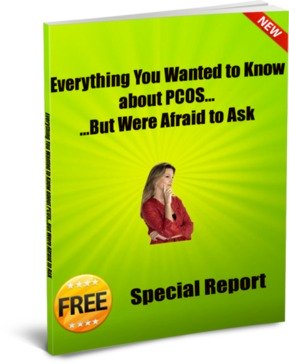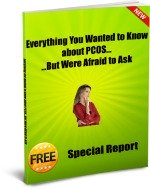Clomid and PCOS
Clomiphrene citrate (brand names Clomid or Serophene) is a medication used as a method of inducing ovulation in women who have PCOS. Lack of ovulation makes it impossible to become pregnant.
Clomid is called "ovulatory stimulants". It is not a hormone. It is a synthetic anti-estrogen. It fools the pituitary gland in your brain into perceiving that more estrogen is needed.
Since estrogen can no longer effectively exert negative feedback on the hypothalamus gland in your brain, gonadotropin secretion spikes upward, resulting in release of FSH (follicle stimulating hormone). The increased FSH level causes growth of more ovarian follicles, and then the rupture of follicles. A ruptured follicle means an egg has been released.
Clomid is sometimes used as part of an in-vitro fertilization (IVF) program.
Clomid is administered early in the menstrual cycle. It is typically prescribed on day 1, 3 or 5 and is continued for 5 days.
As with any medication, Clomid is a mixed bag. Its anti-estrogenic action affects other organs such as the lining of your uterus (endometrium) and cervix. Clomid retards endometrial development and may reduce the possibility of implantation of the embryo in the wall of the uterus.
Clomid also reduces the amount and quality of cervical mucus, which makes it more difficult for sperm to reach the egg.
Clomid Side Effects and Risks
Clomiphrene also has a significant array of possible side effects, including:
- Abdominal pain
- Abnormal uterine bleeding
- Blurred vision
- Breast tenderness
- Enlarged ovaries
- Hair Loss (rare)
- Headaches
- Hot flashes
- Irritability
- Nausea or vomiting
- Ovarian hyperstimulation syndrome (rare)
- Shortness of breath
- Vivid or disturbing dreams.
If you become pregnant as a result of Clomid therapy, you have an approximately 5% to 8% probability of multiple pregnancy (usually twins), which is a rate much higher than in the general population.
Clomid may not be effective if taken for more than six menstrual cycles. After taking Clomid for up to six cycles, it has been reported that you have a 30% probability of becoming pregnant. Other reports suggest a higher success rate.
There is some evidence to suggest Clomid may increase your risk for ovarian cancer if taken for 12 or more cycles. Some medical studies are suggesting that use of Clomid in high doses increases your risk of endometrial cancer and to a lesser extent, breast cancer.
Perhaps you assume that clomiphene is completely "safe". However, recent evidence suggests it is not absolutely safe. It may be "relatively" safe. What we do know is that taking clomiphene is less safe than not taking it at all. Moreover, taking clomiphene does not guarantee that you will ovulate and become pregnant.
Here's another possible side effect. Click here to see the link between Infertility Drugs and Gum Disease
If you're going to take to treat PCOS-related fertility problems, please carefully weigh the benefits and risks.
Return to
Conventional Therapies for PCOS Index Page
PCOS Health Review
This free newsletter gives you original and immediately usable information to help you deal with PCOS.
Get the latest research, tips for improving your health, answers to questions, success stories, and more!
Your e-mail address is totally secure. We will never misuse your information.
Enter Your Email Above to Subscribe Today
and Get Your Questions Answered in this Free Special Report!





